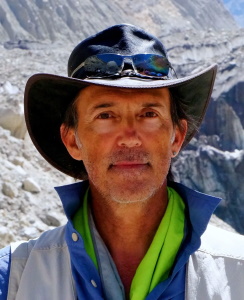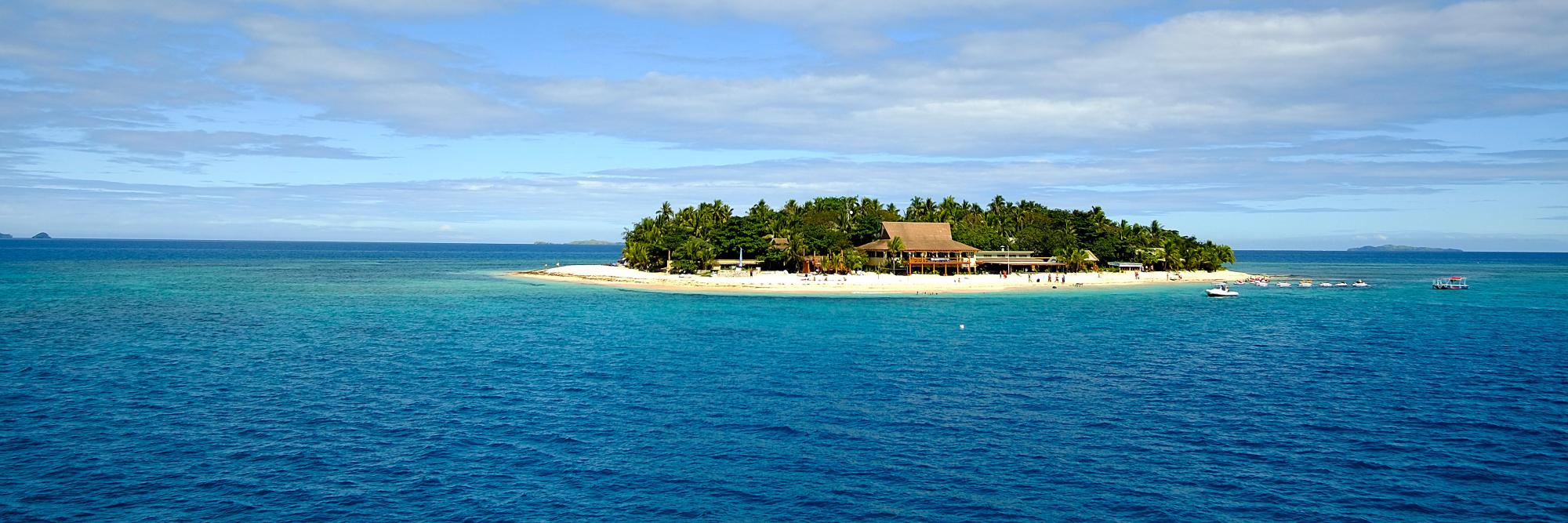David is a retired technology exec and yoga teacher who could not live in an 'adult community' in the States or anywhere else. He has travelled his whole life, having visited over 60 countries, and Fiji is amazing and now his home. Read more about David's Fiji experience and see his musings, photography and more on his website, David Anderson.
For more on expat life, see our Expat Arrivals essential guide, Moving to Fiji.
About David
Q: Where are you originally from?
A: Born in Nebraska, but have lived in many places. Most of the previous 20 years were spent in Florida.
Q: Where are you currently living?
A: Savusavu, Fiji
Q: When did you move here?
A: February 2021
Q: Is this your first expat experience?
A: No. I was a Peace Corps volunteer in the late '70s, have lived in Indonesia, and did a corporate expat gig in Hong Kong.
Q: Did you move here alone or with a spouse/family?
A: My wife and I moved here together.
Q: Reason for moving?
A: We decided it was time to 'retire' from working for a living and to seek more adventure in our lives. Living in the US was not an option anymore, either financially or culturally. We chose Fiji because this was where I was a PCV many years ago, and we had always loved it.
Living in Fiji
Q: What do you enjoy most about Savusavu and Fiji in general?
A: There are so many things to like about this place. I think the top is the peace and ease of life here. There is no rush for anything, and very little stress unless you put it on yourself. The people are warm and welcoming.
Q: Did you have any low points? What do you miss most about home?
A: This is a very long way from where my children and grandchildren are, and video calls are only a partial help; they are deeply missed. I miss a good craft IPA.
The low point was my wife's passing here. She had a stroke and died in our bed with me beside her, but she died exactly where she wanted to be. The people here, my neighbours and my new friends have helped me tremendously.
Q: What are the biggest adjustments you had to make when settling into expat life in Fiji? Did you experience culture shock at all?
A: The regular 'out of stock' conditions in shops are sometimes challenging. Not being able to go to Home Depot or order something for next-day delivery from Amazon takes a bit of getting used to. In the end, we are able to get everything we really need. I had no real culture shock here.
Q: What are your favourite things to do at the weekend? Any particular places or experiences you’d recommend to fellow expats?
A: Snorkelling or paddleboarding, or just taking a drive in the countryside. We have miles and miles of empty beautiful beaches which are easily accessible from the road. It is almost rare to see anyone else on the beach. There are some lovely waterfalls around here and some great hikes ranging from an hour to almost a full day. The countryside is amazing.
Q: What’s the cost of living compared to home? Is there anything especially expensive or cheap in Fiji – or Savusavu specifically?
A: I own my home and truck here so have no housing expenses per se. My electric bill averages USD 40 per month, and food is about USD 300 per month, but booze (spirits) is expensive. A litre of Tanqueray costs USD 60. I eat, travel and live really well for less than USD 1,500 per month.
Q: What’s public transport like in Savusavu and across the country?
A: There are lots of buses and taxis, all reasonably priced.
Q: What do you think about the healthcare available in Fiji? What should expats expect from local doctors and hospitals?
A: This is Fiji’s weakest point. We have a small, under-equipped hospital here in Savusavu. There is a bigger one in Labasa (the biggest town on this island and about a 90-minute drive away) and the 'best' hospital in the capital.
If you have major medical issues and need regular medical care, you probably shouldn’t move here. We can get all the basics done, but not much more.
Q: What’s the standard of housing like in Savusavu? What different options are available?
A: Housing ranges all over the map, from really simple local-style homes to quite large and fancy Western-style homes. Many properties are available for long-term rent.
Q: Any areas or suburbs you’d recommend for expats to live in?
A: There are a couple of 'European' enclaves with all non-local faces. I chose to live in an area with locals and a couple of other expats, but we are quite spread out.
There are a number of areas that are great to live in: the Savusavu side down towards the Cousteau resort, the other side of the peninsula towards Nukubalavu, and past the airport towards Natewa Bay. Construction management is a challenge.
Meeting people and making friends
Q: Is meeting people and making friends easy? How did you go about meeting new people?
A: Yes and no. The expat community here is more spread out and less 'cliquey' than in other places I’ve lived.
There are a few hangouts (Planters Club, Copra Shed) where you can meet people, but you have to make the effort. Then it is quite easy as almost everyone is happy to chat. I joined the Rotary as a way to meet people and participate in service projects.
Q: Did you make friends with locals, or do you mix mainly with other expats? What advice would you give to new expats looking to make friends with the locals?
A: I have friends in the communities here (iTaukie, Indian, expat). My neighbours are iTaukie (the indigenous people) and have been great.
To meet locals, just smile, listen and drink kava.
Working in Fiji
Q: Was getting a work permit or visa a relatively easy process? Did you tackle the visa process yourself, or did you enlist the services of an immigration consultant?
A: Work permits are very difficult to get in Fiji.
Q: What is the economic climate in Savusavu like?
A: Fiji is working its way out of the Covid doldrums but has a lot going for it.
Family and children in Fiji
Q: How has your partner adjusted to your new home?
A: My wife love love loved it here.
Final thoughts
Q: Is there any advice you would like to offer new expat arrivals to Fiji?
A: Be prepared to slow down. You probably won’t be able to get your favourite snack or phone, the internet can be spotty and at times unreliable, and TV is limited. But the beauty is unlimited, the time to learn and explore is all up to you. When you let go of the past, you will find yourself smiling more than you ever have.
After almost 2 years, I still pinch myself each day that I get to live here. It’s paradise.



